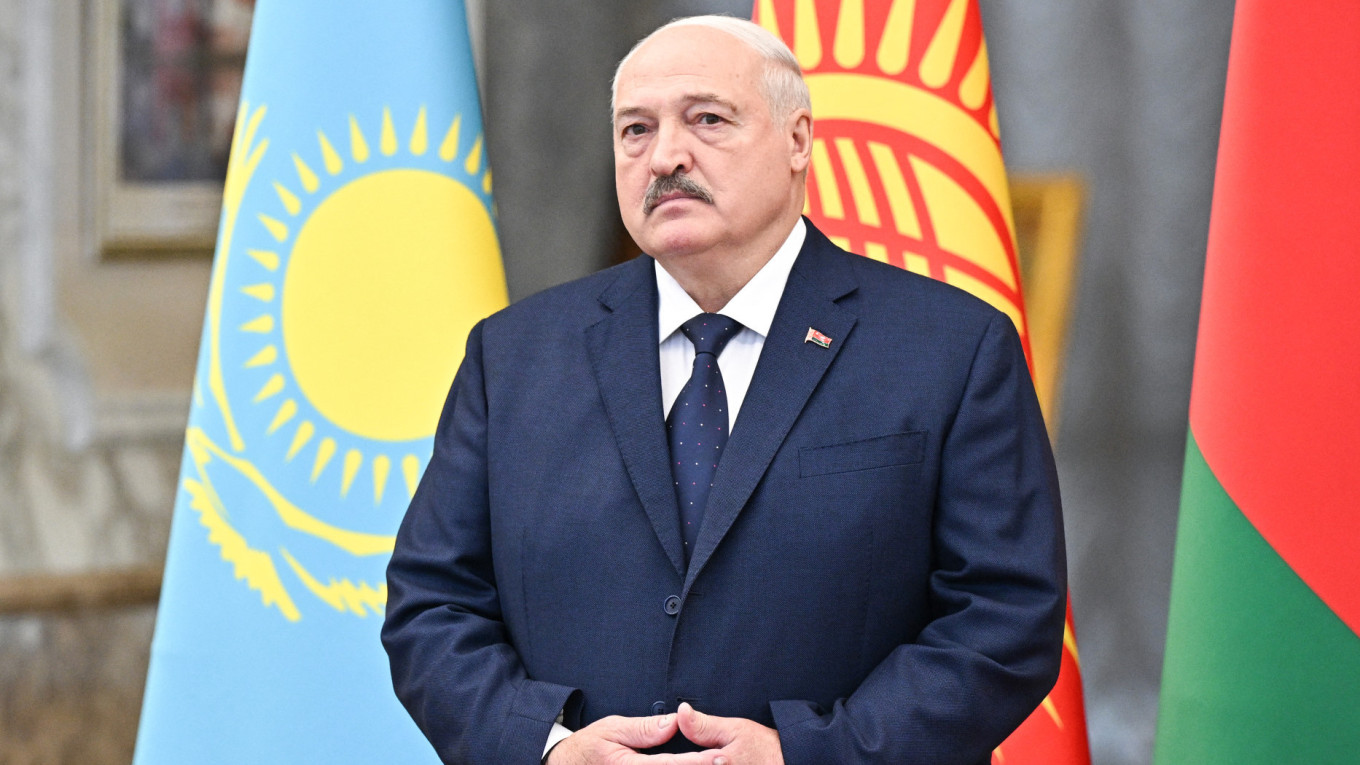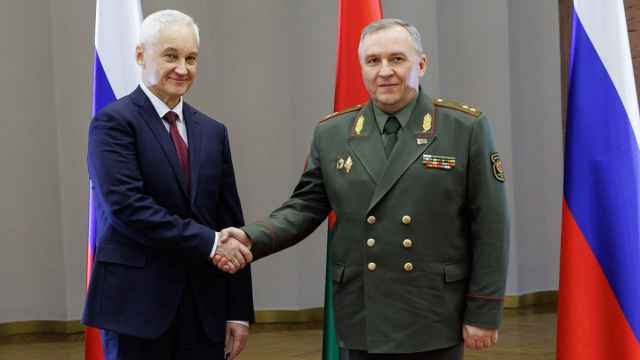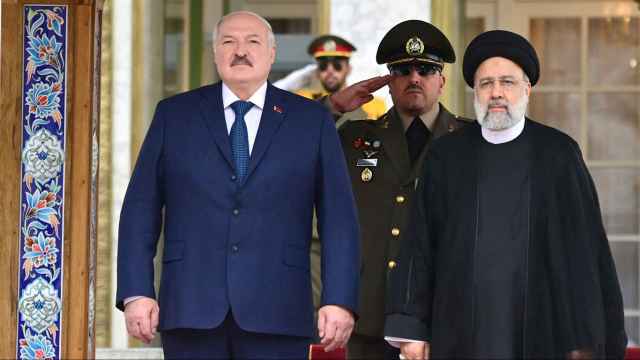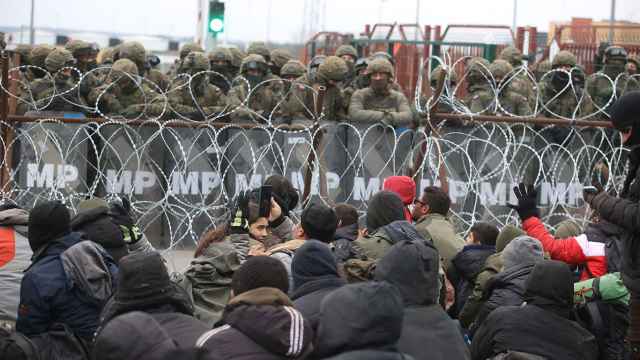U.S. President Donald Trump’s special envoy Keith Kellogg met with Alexander Lukashenko in Minsk on June 21. The contested Belarusian leader marked the visit by releasing fourteen prisoners, mostly political detainees. More than half were nationals of Western countries, but the most high-profile and unexpected release was that of Siarhei Tsikhanouski, one of the leaders of the 2020 protests, who had spent more than five years in prison.
Kellogg’s visit was made possible by the convergence of two complementary interests. The Trump administration is keen to revive at least some sort of regional diplomacy amid the stalled peace talks on Ukraine.
For his part, Lukashenko has long made clear his desire to emerge from the isolation of recent years to play a more significant role in the region. To that end, he is prepared to make concessions. Releasing political prisoners is an easy win for him. After all, more than 1,100 remain behind bars — and more people can always be put in jail. So Lukashenko has bargaining power, as long as he can find a buyer.
Minsk released the first United States citizen in late January, during Trump’s first week back in the White House. Though Washington had begun discussing with Minsk the release of U.S. citizens and former employees of the U.S. news service RFE/RL back in the fall of 2024, the timing sent a clear message: now that a pragmatic leader was in the White House, ready to make deals without liberal moralizing, he would start to succeed where his predecessor had failed.
Two weeks later, three more political prisoners were released, including a U.S. citizen and RFE/RL journalist. When Deputy Assistant Secretary of State Christopher Smith came to Minsk to accompany them home, he met with Lukashenko, and The New York Times reported that they discussed a “grand deal” — a mass release of political prisoners in exchange for lifting some U.S. sanctions.
In April, Lukashenko released the last political prisoner with U.S. citizenship, Yuri Zenkovich, who was escorted from Belarus by Kellogg’s deputy John Cole. It is likely that this is when Minsk began its dialogue with one of Trump’s main negotiators on Ukraine.
It is not yet clear whether Lukashenko will receive anything in exchange for the latest round of political prisoner releases. The meeting with Kellogg was in itself a breakthrough for Belarusian diplomacy by the standards of the last five years and may be enough to satisfy Minsk for now.
In any case, it is dangerous for Lukashenko to get ahead of himself at a time when U.S.-Russian negotiations have come to a standstill. It is important to move in sync with Russia, where possible, or risk punishment from the Kremlin.
By releasing Tsikhanouski, Lukashenko showed just how highly he values this level of U.S. attention. Tsikhanouski, a popular blogger who was jailed shortly after announcing that he would run for president in 2020, was Lukashenko’s most defiant opponent and the greatest threat to his three decades in power, having started the first regional protests even before the election. Following his imprisonment, Tsikhanouski’s wife, Sviatlana, ran in his place and ultimately became the recognized leader of the Belarusian opposition.
Tsikhanouski did not become any less defiant once behind bars. Even in the pretrial detention center, at an impromptu meeting of opposition leaders with Lukashenko, he hinted that not only could the Belarusian autocrat himself face problems in the event of a change in leadership, but that his children could, too. Lukashenko would later publicly bring up those threats on more than one occasion.
And yet, all of a sudden, despite these grievances, Tsikhanouski became the first of the opposition leaders imprisoned in 2020 to be released. Lukashenko is signaling to the West that he is, in principle, ready to release any political prisoner: there are no red lines, people just need to keep talking to him.
While Kellogg’s visit is obvious progress, the ultimate outcome of such conversations remains unclear. Minsk still has plenty of prisoners to use as bargaining chips, while the United States can send more delegations or even reopen its embassy in Belarus. But diplomatic gestures alone will not be enough.
Sooner or later, Minsk will expect sanctions to be eased, and then the EU’s tougher position is likely to become an obstacle. Without the lifting of EU sanctions, American concessions will not be enough to unblock Belarus’s key trade flows, but there are no signs so far that the EU has any inclination to follow in Washington’s footsteps by resuming dialogue with Lukashenko.
Minsk is counting on Washington to intervene on its behalf in a future conversation with the EU, to implement the “Western” part of the grand deal deal. But for that to happen, Washington’s interest in Lukashenko needs to be geopolitical as well as humanitarian. For example, Minsk needs to show the White House it has a role to play in bringing peace to Ukraine.
As special envoy on Ukraine, Kellogg is the best person to engage in such a conversation. But it is still unclear what exactly Lukashenko could try to offer him. Back during the earlier Minsk negotiations aimed at resolving the Ukraine conflict prior to Russia’s full-scale invasion in 2022, Belarus was at least a diplomatic platform, if not a mediator. Now, its role has been reduced to a location for Russia and Ukraine to exchange prisoners of war. No one is planning to move the latest peace talks from Istanbul to Minsk and Lukashenko has no levers of influence over either Russia or Ukraine.
It is possible that Washington has low expectations and simply wants to show that it is having at least some local successes amid the deadlock in talks between Russia and Ukraine. Or perhaps Trump’s advisors have become so desperate to find an effective approach to Moscow and Kyiv that they are even prepared to consider following advice from Lukashenko, especially since those loyal to him like to describe him as a rare connoisseur of Putin’s thinking, and therefore an extremely valuable interlocutor for the West.
In any case, it is unclear how Minsk could influence the course of the war or the peace talks even if it wanted to. Until Moscow has sufficient incentives to abandon its maximalist demands or Kyiv has sufficient reasons to accept them, there will be no progress, regardless of Minsk’s position. But Lukashenko is trying to squeeze as much out of the prospect of peace talks for as long as he can and, for the first time in a long while, Washington is prepared to play along.
This article is adapted from the original published by the Carnegie Endowment for International Peace.
A Message from The Moscow Times:
Dear readers,
We are facing unprecedented challenges. Russia's Prosecutor General's Office has designated The Moscow Times as an "undesirable" organization, criminalizing our work and putting our staff at risk of prosecution. This follows our earlier unjust labeling as a "foreign agent."
These actions are direct attempts to silence independent journalism in Russia. The authorities claim our work "discredits the decisions of the Russian leadership." We see things differently: we strive to provide accurate, unbiased reporting on Russia.
We, the journalists of The Moscow Times, refuse to be silenced. But to continue our work, we need your help.
Your support, no matter how small, makes a world of difference. If you can, please support us monthly starting from just $2. It's quick to set up, and every contribution makes a significant impact.
By supporting The Moscow Times, you're defending open, independent journalism in the face of repression. Thank you for standing with us.
Remind me later.








